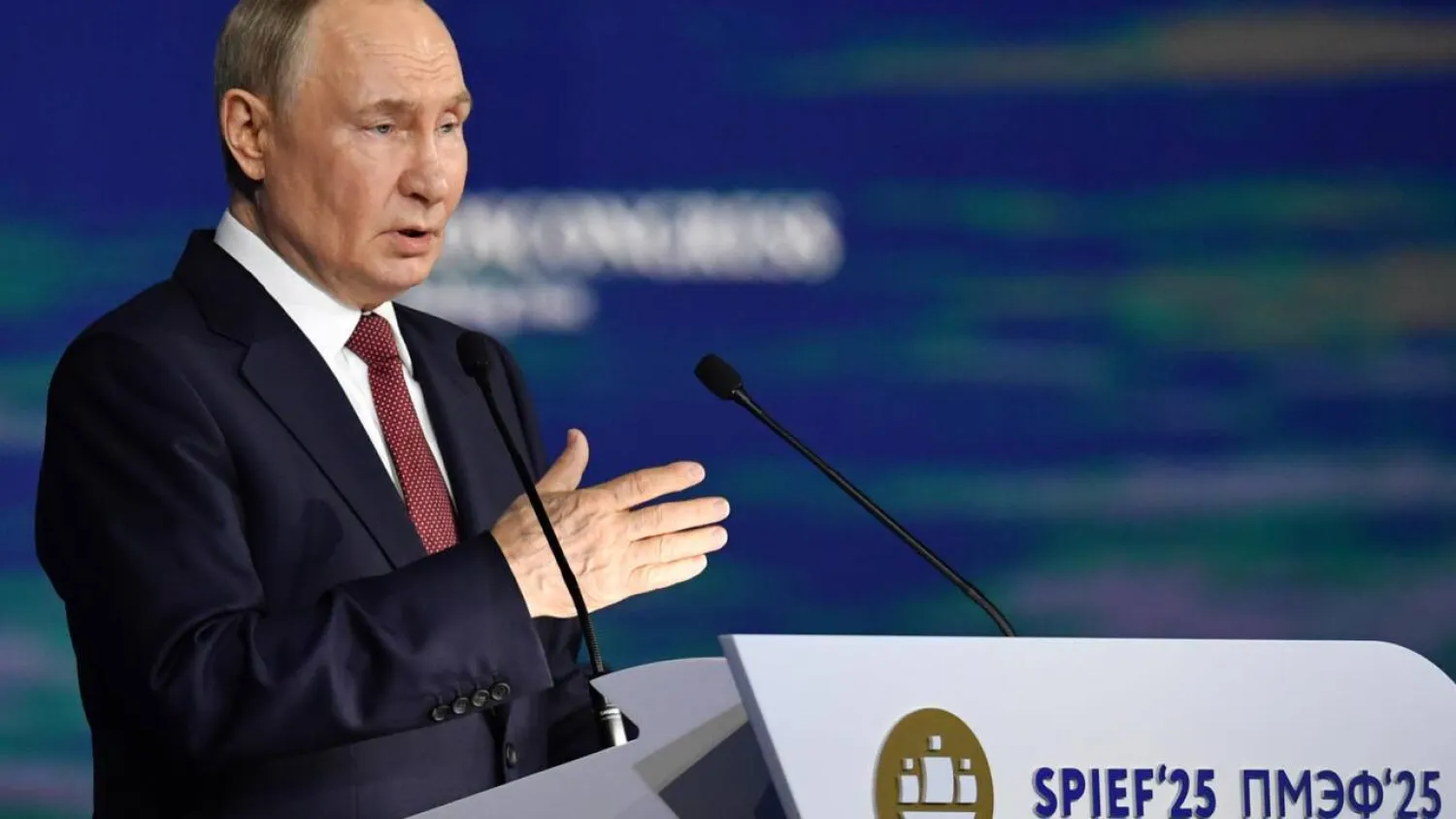President Vladimir Putin on Friday urged officials not to let Russia fall into recession "under any circumstances", as some in his own government warned of a hit to economic growth.
Economists have warned for months of a slowdown in the Russian economy, with the country posting its slowest quarterly expansion in two years for the first quarter of 2025, reported AFP.
The Kremlin has said this was to be expected after two years of rapid growth as it ramped up military expenditure to fund the Ukraine campaign, but officials including the country's economy minister have raised alarm about possible pain ahead.
"Some specialists and experts are pointing to the risks of stagnation and even a recession," Putin told attendees at Russia's flagship economic forum in Saint Petersburg.
"This must not be allowed to happen under any circumstances," he said.
"We need to pursue a competent, well-thought-out budgetary, tax and monetary policy," he added.
The Russian economy grew in 2023 and 2024 despite the West's sweeping sanctions, with massive state spending on the military powering a robust expansion.
But analysts have long warned that heavy public investment in the defense industry is no longer enough to keep Russia's economy growing and does not reflect a real increase in productivity.
At his address to the forum on Friday, Putin was upbeat about Russia's economic prospects and denied the economy was being driven solely by the defense and energy industries.
"Yes, of course, the defense industry played its part in this regard, but so did the financial and IT industries," he said.
He said the economy needed "balanced growth" and called on officials to keep a "close eye on all indicators of the health of our industries, companies and even individual enterprises."










